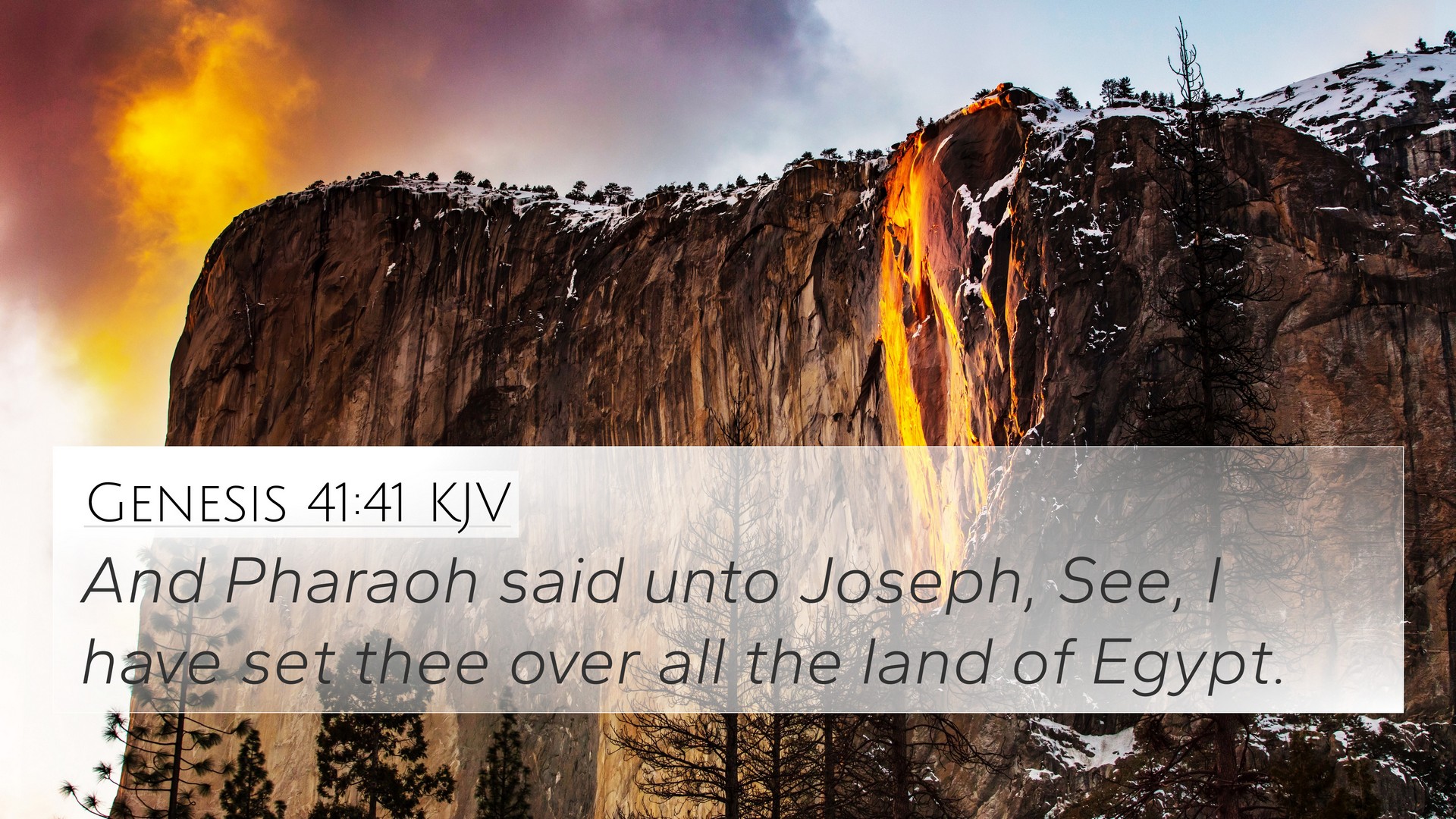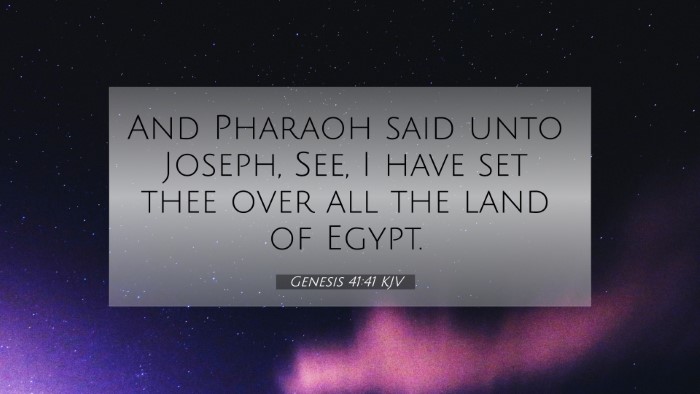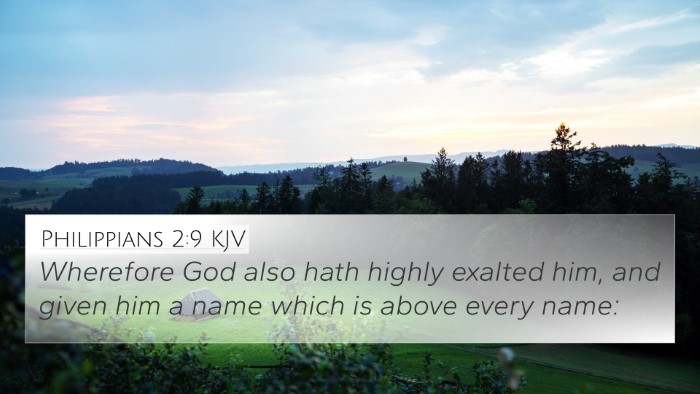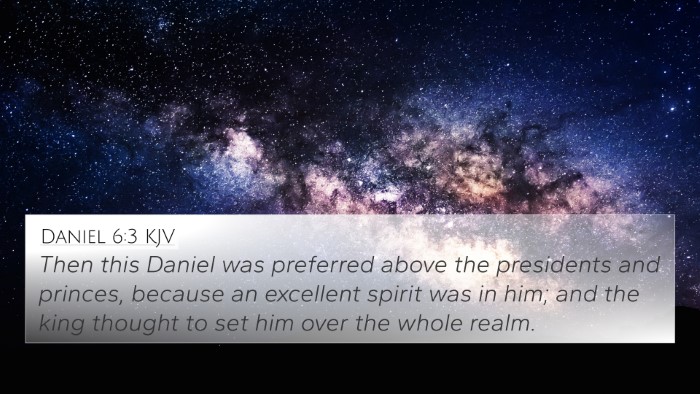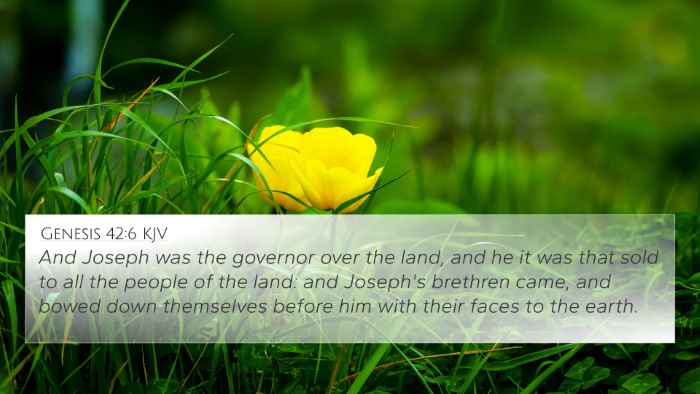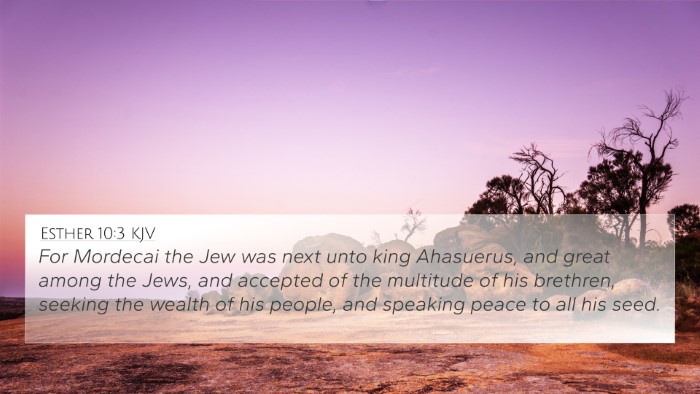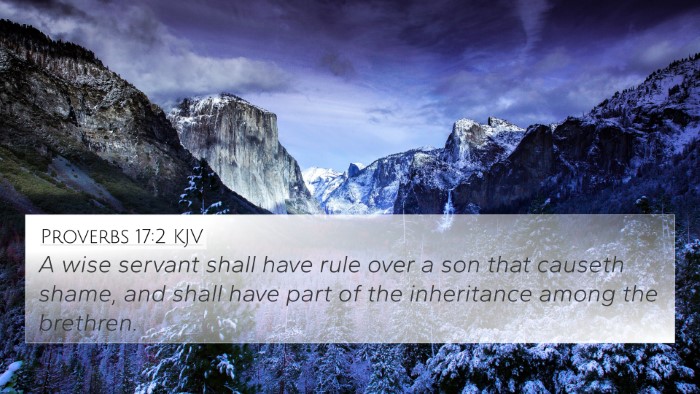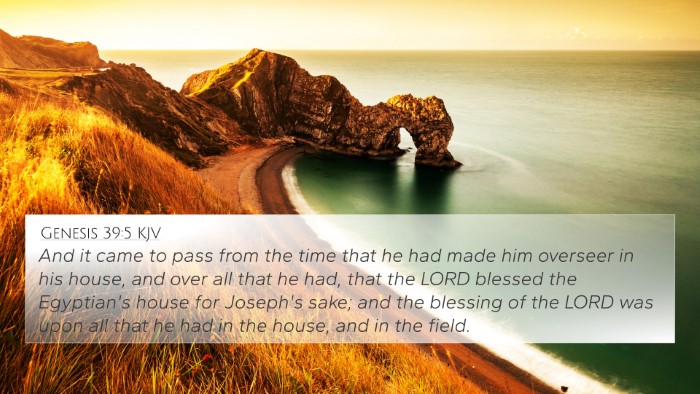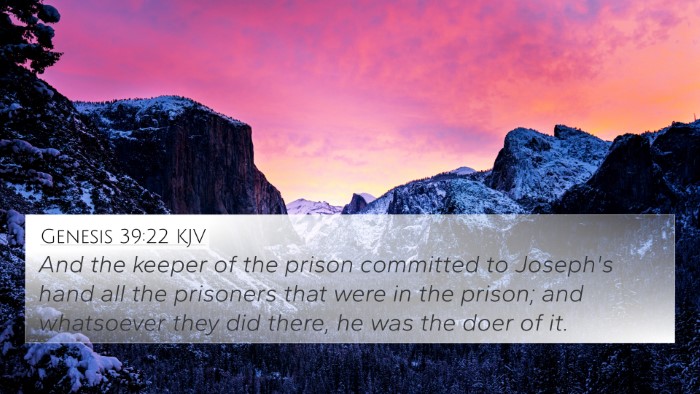Understanding Genesis 41:41
Genesis 41:41 reads:
"And Pharaoh said to Joseph, 'See, I have set you over all the land of Egypt.'" (Genesis 41:41, ESV)
This verse marks a pivotal moment in the narrative of Joseph, illustrating his rapid rise from prisoner to the second most powerful man in Egypt. We will explore its meaning using insights from notable public domain commentaries including those of Matthew Henry, Albert Barnes, and Adam Clarke.
Contextual Background
Joseph had been imprisoned due to false accusations but became a trusted advisor to Pharaoh after interpreting the king’s dreams. This set the stage for his elevation to power, which is encapsulated in Genesis 41:41.
Commentary Insights
-
Matthew Henry's Commentary:
Henry emphasizes the divine providence in Joseph's elevation, highlighting that it was God's plan that Joseph would guide Egypt through impending famine. This underlines the theme of God's sovereignty and foresight.
-
Albert Barnes' Commentary:
Barnes indicates that Joseph’s wise administration would not only benefit Egypt but would also fulfill God's covenant promise to Israel, demonstrating how God uses individuals for larger purposes.
-
Adam Clarke's Commentary:
Clarke notes that Pharaoh’s decision reflects the respect and trust he placed in Joseph, pointing to the moral integrity and capabilities Joseph displayed through trials. This illustrates the restorative nature of faithfulness under trial.
Thematic Connections
The elevation of Joseph serves as a significant theme not just in Genesis but throughout the Bible. His story connects with various themes such as redemption, sovereignty, and divine purpose. Below, we explore some related verses that provide a broader understanding of these themes:
Related Bible Cross References
- Psalms 105:17-19: Reflects on God's providence in sending Joseph to Egypt, reinforcing the notion of divine purpose in trials.
- Romans 8:28: Emphasizes that all things work together for good for those who love God, similar to Joseph's journey from slavery to leadership.
- Genesis 50:20: Joseph himself acknowledges that what was meant for evil, God meant for good, highlighting God's overarching plan.
- 1 Peter 5:10: Speaks of God restoring and establishing believers after suffering, echoing Joseph’s restoration to power.
- Jeremiah 29:11: God's promise of hope and a future parallels Joseph's unexpected rise to prominence.
- Hebrews 11:22: Joseph's faith is mentioned, showing how he foresaw God's promises into the future, connecting with his elevation.
- Acts 7:9-10: Stephen's recounting of Joseph’s story draws parallels between Joseph's sufferings and divine favoritism in his eventual rise.
Understanding Divine Providence
Genesis 41:41 can also be analyzed within the context of divine providence and the importance of faithfulness. Joseph’s journey from adversity to power teaches that trust in God's plan, even in the most challenging situations, leads to growth and fulfillment of purpose.
Importance of Cross-Referencing
When studying the Bible, employing tools for cross-referencing enhances understanding. By exploring connections between Bible verses, readers can grasp the thematic depth of scripture. Using a Bible concordance or a cross-reference guide can assist in uncovering these themes.
How to Use Bible Cross-References
- Identify key themes and concepts in verses.
- Use concordance tools to find related verses.
- Analyze connections between different parts of scripture.
- Reflect on the contextual meanings of each verse.
- Consider thematic parallels between the Old and New Testament.
Conclusion
Genesis 41:41 is not merely a verse about Joseph's elevation but a profound statement about God’s sovereign work throughout history. Studying cross-references reveals deeper insights into faith, perseverance, and the fulfillment of divine promises.
This exploration encourages readers to dive deeper into the Scriptures, illustrating that the Bible is a cohesive narrative woven with connections that enrich our understanding of faith and God's unfolding story.
